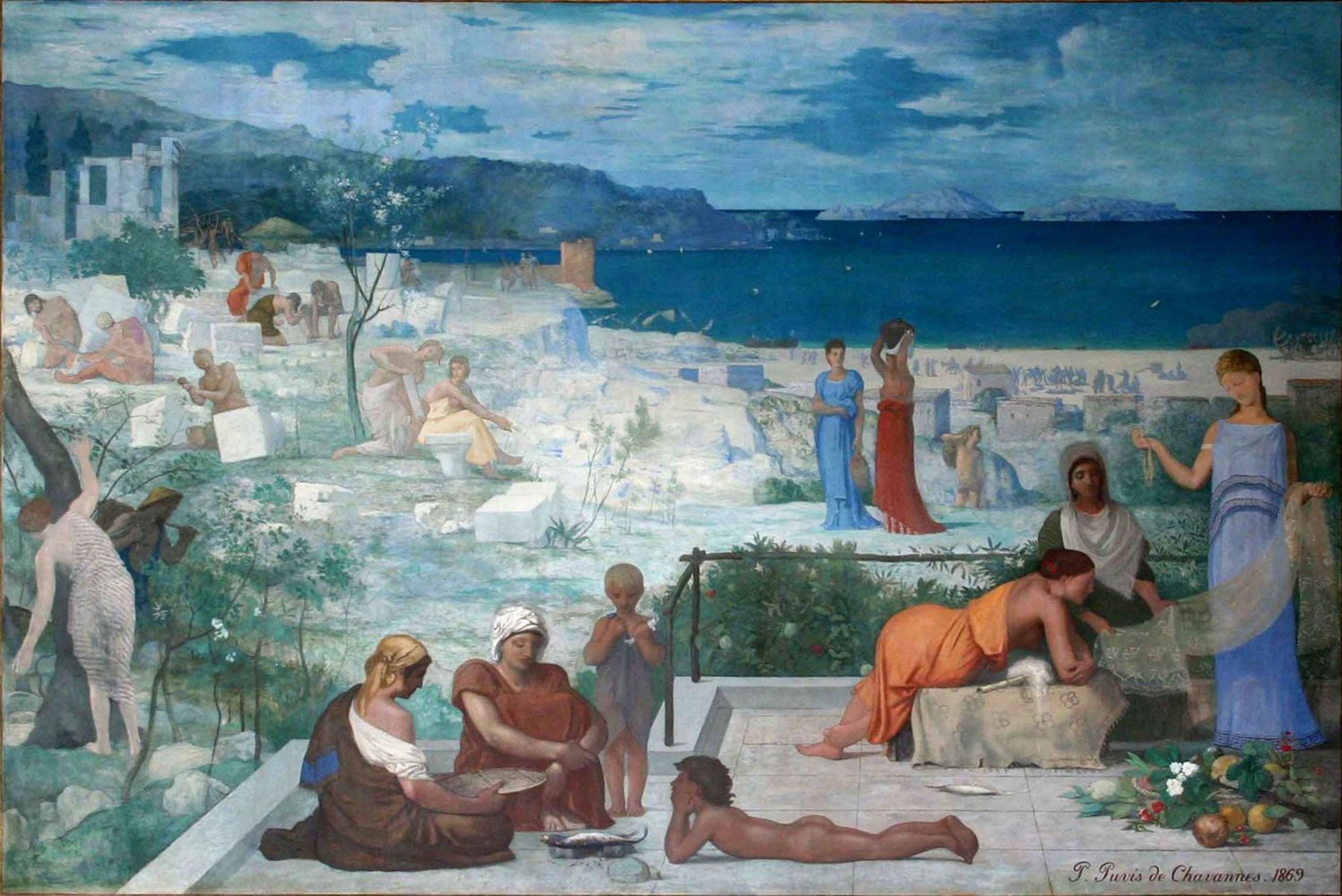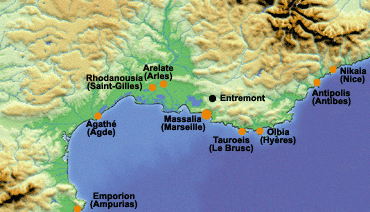- Home
- Gauls and Greeks
- Relations with Greek Marseilles
The inhabitants of Marseilles are "surrounded by arrogant tribes and terrified by the savage rituals of their barbarian neighbors". Silius Italicus (Latin poet), Punica, XV, 169-172, 3rd century BC
-600 BC : Foundation of Massalia (Marseille).
Beginning of exchange
-575 à -530 BC : Establishment of other trading posts to the west by the Phocaeans: Agatha (Agde), Emporion (Ampurias), and in the lower Rhône valley, commercial stops between the Greeks of Marseilles and indigenous peoples: Rhodanousia (Saint-Gilles-du-Gard?), Heraclea (perhaps) and Theline (Arles). This latter became a colony between 500 and 400 BC.
Increased exchange.
-400 BC : Retreat of the Greeks from the center of the lower Rhône valley (the colony of Theline becomes the agglomeration of Arelate with a mixed population), benefiting the reinforcement of the coastal line of defense by the foundation of new small colonies: Olbia (Hyeres), Antipolis (Antibes), Agathe (Agde) reestablished by Marseilles.
Violent conflicts.
-300 BC : Reinforcement of the commercial circuits against repeated attacks by the Celto-Ligurians: foundation of colonies at Tauroeis (Le Brusc) and Nikaia (Nice). Repeated attacks.
-181 à -125 BC : The people of Marseilles solicit military intervention from Rome several times.
-123 BC : Ultimate capture of the Salyen fortress by the Roman Legions.
-100/-90 BC : Violent and definitive destruction of the Entremont agglomeration.
From the 6th to the 2nd century BC, relations between the Greek colony of Marseilles and the nearby indigenous societies were fraught with conflict. Ancient texts repeatedly allude to the danger and military pressure imposed by the indigenous community on the Greek city, its surrounding territories and its coastal commercial interests. We can thus imagine the force and longevity of the cultural oppositions that divided these regional partners. Even if the expression of these confrontations reached one of its heights with the establishment of the Entremont agglomeration in the 2nd century BC, we cannot limit the relations between Greeks and Gauls to the image of conflicts alone as recounted by historical sources.
This violence, which remained limited to the region surrounding Greek Marseilles and its coastal extensions, resulted from specific causes associated with this proximity. The importance of the Phocaean milieu, and the long history of political and economic pressure imposed on populations neighboring Greek settlements since the 6th century, resulted in dependent, colonial type relations in this part of southern France. This atmosphere inhibited the evolution of the indigenous milieu, as can be seen in comparison to evolutions that occurred in the cultural and economic domains of other regions of Gallic southern France.

